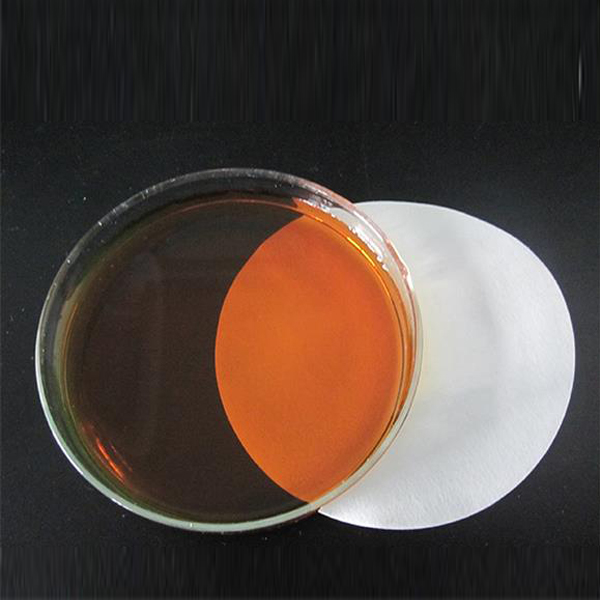
News
अगस्त . 22, 2024 03:08 Back to list
Leading Chelated Zinc and Copper Fertilizer Producers for Enhanced Crop Nutrition
The Importance of Chelated Zinc and Copper Fertilizers in Modern Agriculture
In the realm of modern agriculture, the significance of micronutrients in crop production cannot be overstated. Among these essential micronutrients, zinc and copper play vital roles in plant health and development. However, the availability of these nutrients in the soil is often limited due to various factors, such as pH levels and soil composition. This is where chelated zinc and copper fertilizers come into play, providing a reliable solution for farmers seeking to enhance crop yields and maintain soil health.
Understanding Chelation
Chelation is a chemical process in which a metal ion, such as zinc or copper, binds with an organic molecule, typically an amino acid or a synthetic chelating agent. This interaction forms a stable complex that increases the solubility and bioavailability of the metal ions, making them easier for plants to absorb. Chelated fertilizers are designed to protect these essential nutrients from being locked away in the soil, thus ensuring that plants can access them when needed.
Role of Zinc in Plant Health
Zinc is a crucial micronutrient that contributes to numerous physiological functions in plants. It plays a vital role in enzyme activity, protein synthesis, and the regulation of plant hormones. A deficiency in zinc can lead to stunted growth, delayed maturity, and increased susceptibility to diseases. Symptoms of zinc deficiency are often visible in the form of interveinal chlorosis, where the leaves turn yellow while the veins remain green. By utilizing chelated zinc fertilizers, farmers can effectively address these deficiencies, leading to healthier plants and improved yields.
Copper's Contribution to Plant Growth
Similarly, copper is essential for various biochemical processes within plants. It aids in photosynthesis, respiration, and the synthesis of lignin, which is crucial for strong cell walls. Like zinc, copper deficiency can result in poor plant health, manifesting as leaf curling, necrosis, and reduced vigor. Chelated copper fertilizers help ensure that this crucial micronutrient is readily available to plants, promoting robust growth and development.
Advantages of Chelated Zinc and Copper Fertilizers
chelated zinc copper fertilizer manufacturer

The use of chelated zinc and copper fertilizers offers several advantages
1. Enhanced Nutrient Availability Chelation increases the solubility of metal ions, making them more accessible to plant roots. This is particularly important in soils with high pH or low organic matter where nutrient availability is often compromised.
3. Improved Crop Yields With the optimal availability of zinc and copper, plants can grow healthier and more robust, translating to higher yields and better quality produce.
4. Sustainability The efficient use of micronutrients helps in sustainable agricultural practices by reducing the need for excessive chemical fertilizers, thus minimizing environmental impact.
Choosing the Right Chelated Fertilizer Manufacturer
When selecting a chelated zinc and copper fertilizer manufacturer, farmers should consider several factors
- Product Quality Research the quality of the chelating agents used, as this can affect the effectiveness of the fertilizers. - Reputation Choose established manufacturers with a proven track record in the industry. - Support and Guidance Opt for companies that provide agronomic support and guidance on the best practices for application.
In conclusion, chelated zinc and copper fertilizers are essential tools for modern agriculture. By ensuring the availability of these critical micronutrients, farmers can promote healthier crops, increase yields, and contribute to sustainable farming practices. Investing in high-quality chelated fertilizers from reputable manufacturers is a step towards achieving agricultural success.
-
Polyaspartic Acid Salts in Agricultural Fertilizers: A Sustainable Solution
NewsJul.21,2025
-
OEM Chelating Agent Preservative Supplier & Manufacturer High-Quality Customized Solutions
NewsJul.08,2025
-
OEM Potassium Chelating Agent Manufacturer - Custom Potassium Oxalate & Citrate Solutions
NewsJul.08,2025
-
OEM Pentasodium DTPA Chelating Agent Supplier & Manufacturer High Purity & Cost-Effective Solutions
NewsJul.08,2025
-
High-Efficiency Chelated Trace Elements Fertilizer Bulk Supplier & Manufacturer Quotes
NewsJul.07,2025
-
High Quality K Formation for a Chelating Agent – Reliable Manufacturer & Supplier
NewsJul.07,2025
